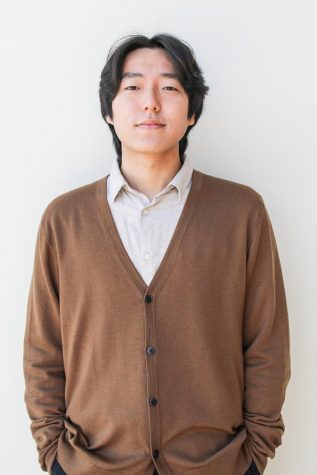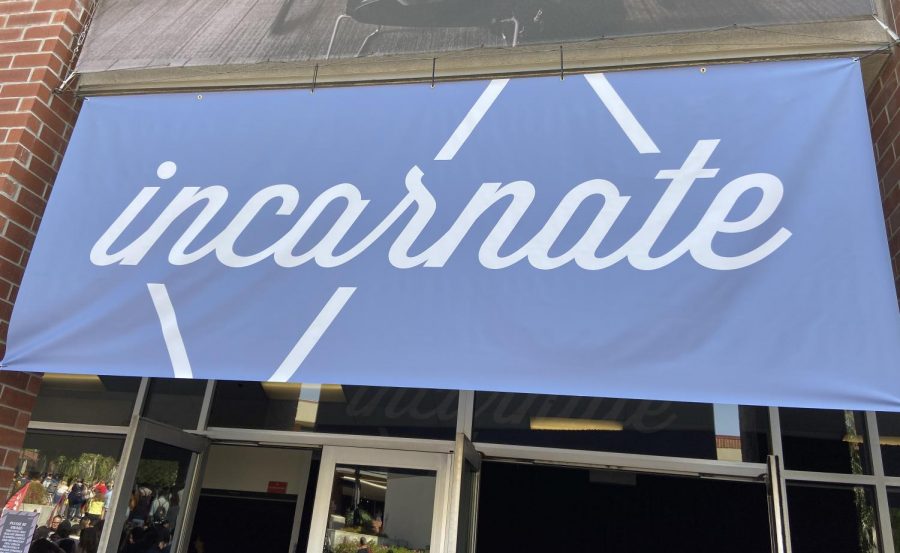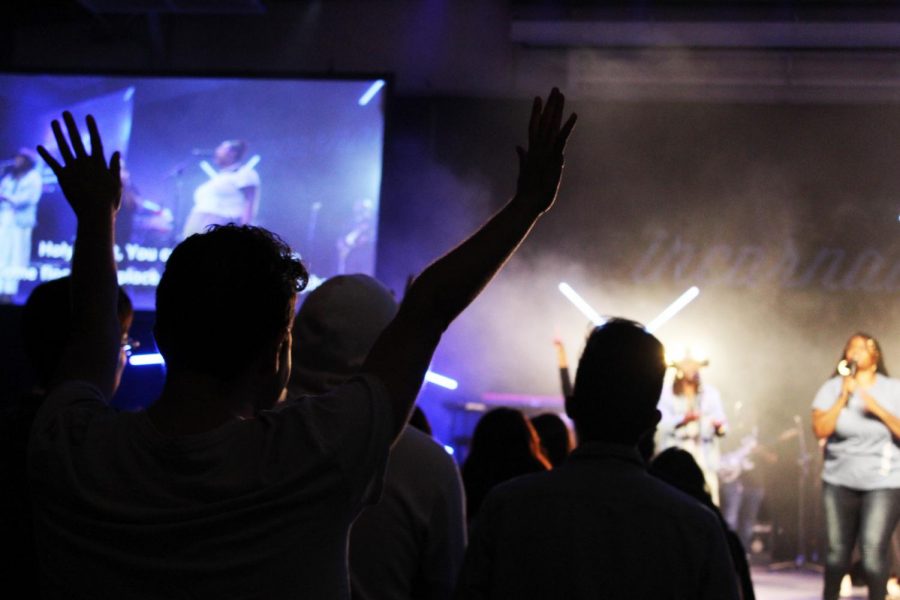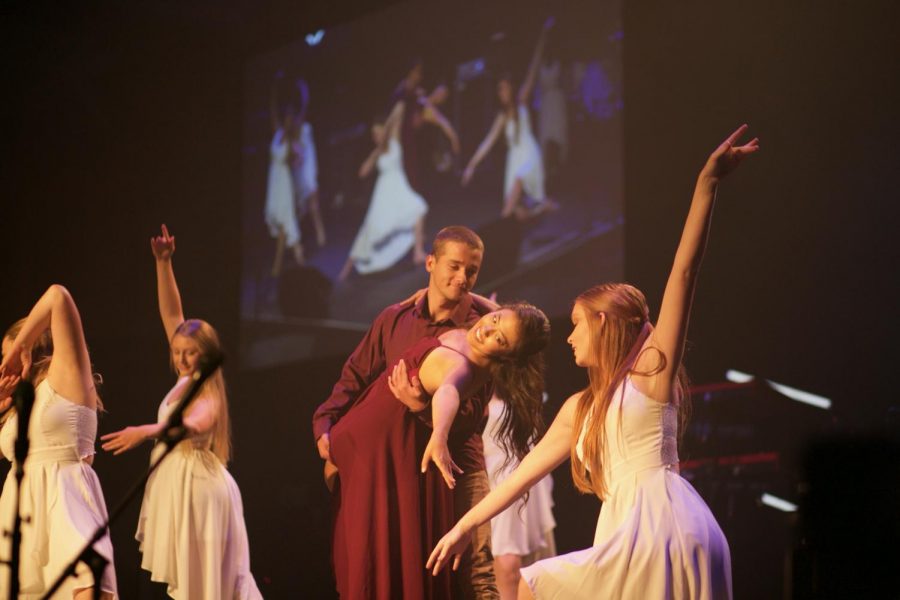As students trudged through the long lines of Torrey Conference day two, gospel choir director Aja Grant welcomed the tired crowd into enthusiastic worship in the Chase Gymnasium.
APPRECIATING DIFFERENT WORSHIP EXPRESSIONS
Grant began the session with a visual and interactive reminder of the diversity in postures of worship, interacting with Torrey Conference co-producer and tech coordinator Landon White. Grant and White emphasized the differences in worshipping styles by striking poses that best reflected their typical worship postures.
In a matter of seconds, there were people bowing their heads, others with their arms stretched upwards, and some even prostrate, as students expressed the way they typically worshipped God.
“I think a lot of us come from backgrounds where we only worship with a part of ourselves,” White said. “Maybe just our hearts, or maybe like me, just our minds, or maybe just our bodies.”
White hoped that this exercise of conversing with others with different worship styles would allow everybody to realize that there are many types of worship.
“It really opened up the door for people to see diverse opinions and just to be more accepting of other people’s worship styles,” said junior business administration major Rachel Welch.
PURSUING ACHIEVEMENT OUT OF GRATITUDE
In this session, speaker Ken Shigematsu utilized the image of the yoke, referring to Matthew 11:28-30 to reveal that Christians should not pursue achievement out of anxiousness. The yoke was a wooden crosspiece that was put on oxen’s necks in order to guide them.
He said Christians are burdened when they wear their own yokes and forget about the availability of Jesus’ yoke—which is knowing the Father’s love for his children.
“This if/then kind of thinking cannot be supported by the social sciences,” Shigematsu said. “Because every time we achieve a goal, our brain moves the goal post as to what success looks like.”
Shigematsu emphasized the necessity of resting in the Father’s love rather than allowing achievements to define one’s identity.
“When you know that you are loved by the one being in the world that matters most, you’re going to take a few moments in relationships,” Shigematsu said. “It doesn’t mean that rejection will no longer hurt or failure won’t sting anymore, but you’re going to be just a little more bold, a little more daring because you know that you are loved by the one that matters most.”
Junior English major Zachariah Jimison said that this session was his favorite so far from this year’s Torrey Conference.
“Ken Shigematsu talked about things that are really relevant to my life right now, in terms of finding space to focus on God instead of just focusing on what I’m achieving,” he said. “I thought it was really helpful and something I really needed to hear.”
I’LL PUSH YOU
Later that afternoon, students made their way back to the gym, greeted with bags of popcorn and welcoming smiles from the Spiritual Development staff. This session was different, instead of a sermon, it was a screening of a documentary called “I’ll Push You.”
“I’ll Push You” follows the journey of two friends, Justin Skeesuck and Patrick Gray, who embark on a 500-mile hike up Spain’s El Camino de Santiago. The two men face one major complication: Skeesuck is wheelchair-bound due to a condition called Multifocal Acquired Motor Axonopathy.
Gray crafted his identity around being dependable and taking on hardship by himself. The trail demanded more than he bargained for, and forced him to come to a place where he reached out for help from others. Spiritual director Ron Ottenad used the Incarnate theme as an example of the humility portrayed in Skeesuck and Gray’s journey.
“The entire story of the incarnation is God humbling himself to come and be with us, so that we might know his kingdom,” Ottenad said. “I think we Americans get it so backwards. It’s not in our strength, really, but in our willingness to humble ourselves that the kingdom is actually presented.”
Through steep terrain, muddy trails, a broken wheel and severe exhaustion, Gray and Skeesuck reached their destination after five long weeks.
Throughout the gym, many tears were shed during the film. For many students, this movie motivated them to do what is seemingly impossible.
“[The movie] was very inspiring,” said sophomore communication studies major Daniella Natividad. “It shows you can do anything you set your mind to.”
THE MYSTERY OF INCARNATION
Following a worship session led by Matt Redman, Karrie Garcia returned to apply the theme of incarnate to the problem of human suffering. Her presentation encouraged students to lean into the mystery of incarnation.
“God has let me know that there’s far too many of you in this room trying in formulaic faith to grab hold of the incarnate Christ,” she said. “And he is saying, ‘It is in the sweet release. It is in the honesty of your suffering. It is in the true confession. Not out of condemnation, but the desire to know that it is in the raw, fragile places that you can grow.’”
In response to this session, senior elementary education major Maddisyn Nelson reflected on what it means for Jesus to be incarnate.
“Jesus is human, and he came down to our level so that we can live in the kingdom of God and so that we can be okay with our humanness and our fallenness,” she said.
After Garcia prayed over the crowd, dean of Spiritual Development Todd Pickett invited students to gather at the base of the stage and kneel in a symbolic gesture of worship. Redman then resumed the stage to lead an extended worship time. The session closed with an abridged version of the Nicene creed, mirroring the opening session.
“Go and incarnate the love of Christ into the world,” Pickett encouraged.
For more information on Torrey Conference 2019, click here.
















